 United States (English)
United States (English)
Shopping Cart
Empty Cart
Part No: {{entry.product.code}}
Quantity: {{entry.quantity}}
Total {{cartInfo.totalPriceWithTax.value | currency:"$"}}
Total {{0 | currency:"$"}}
 United States (English)
United States (English)
Part No: {{entry.product.code}}
Quantity: {{entry.quantity}}
Total {{cartInfo.totalPriceWithTax.value | currency:"$"}}
Total {{0 | currency:"$"}}
Asia Pacific
Europe, Middle East, Africa
 România (Română)
România (Română)
 European Union (English)
European Union (English)
 België (Nederlands)
België (Nederlands)
 Belgique (Français)
Belgique (Français)
 France (Français)
France (Français)
 Deutschland (Deutsch)
Deutschland (Deutsch)
 Italia (Italiano)
Italia (Italiano)
 Nederland (Nederlands)
Nederland (Nederlands)
 Polska (polski)
Polska (polski)
 Россия (русский)
Россия (русский)
 South Africa (English)
South Africa (English)
 España (Español)
España (Español)
 Україна (українська)
Україна (українська)
 United Kingdom (English)
United Kingdom (English)
 Česko (Česká republika)
Česko (Česká republika)
 United Arab Emirates (English)
United Arab Emirates (English)
North America
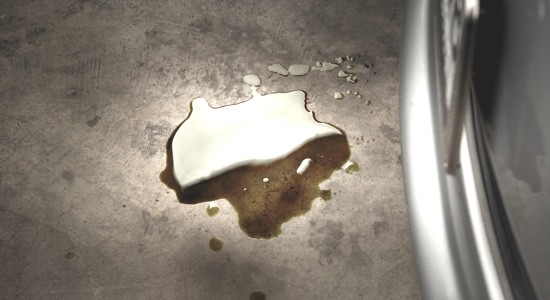
The past few mornings you’ve noticed spots of a light yellow to brownish fluid under your vehicle, near the wheel. You reach down and touch the spot; the fluid leaves a slippery residue on your finger. Concerned what it might mean for your vehicle, you wonder if it could be brake fluid leaking from your car’s brake system.
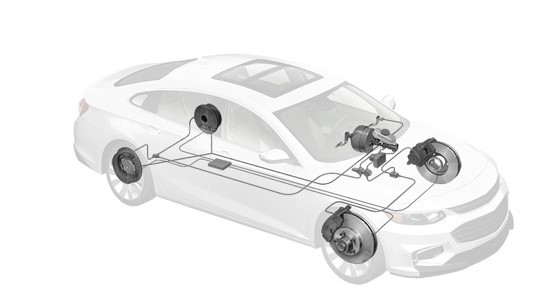
Your vehicle’s braking system is designed to be a closed system. It’s composed of a brake pedal, various switches, a reservoir, brake lines, various cylinders, links, pistons and brake fluid. Components such as the reservoir, master cylinder and brake lines are stationary while switches and pistons are frequently on the move.
Damage to any of these components can result in brake fluid leaks that can affect the performance and response of your vehicle’s braking system. Keeping your brake system in proper working order is critical to maintaining a safe and dependable vehicle. Read on to learn what could cause a brake fluid leak and what parts are susceptible to a leak.
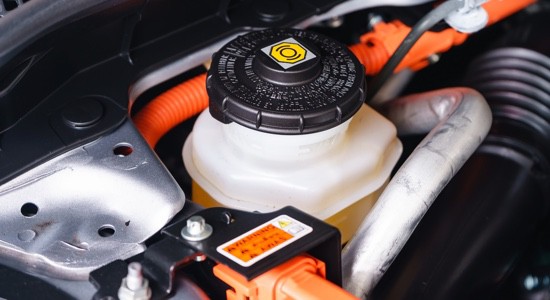
Essential for the safe operation of your vehicle, brake fluid is designed to help transfer the movement and force created when you press down on the brake pedal. A brake fluid leak can cause a loss of brake pressure, resulting in an inability to stop the vehicle. To learn more about brake fluid, check out this article.
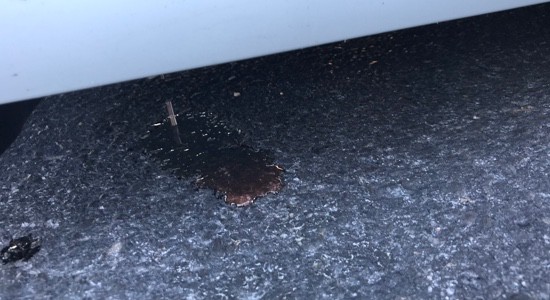
When your vehicle leaks brake fluid, it typically leaves a trail that can range from a light, yellowish hue to a dark brown that resembles motor oil. If you suspect your vehicle is leaking, check on the ground under the vehicle, around the master cylinder, on the brake lines, on the rotors and on the drums.
Often dirt will accumulate on slow leaks, so if you see dirt caking, wipe the dirt away and inspect the area. If pads or shoes and their respective counterpart rotors and drums become worn, the pistons that operate the pads or shoes can become hyperextended, breaking the cylinder seals and weeping fluid to the affected area.
A soft brake pedal or a pedal that suddenly performs differently is an indication that a major leak may have occurred. Under these conditions, pull off to a safe area and take appropriate measures of inspection or call a professional. Check the reservoir, generally located on or near the master cylinder and make sure you have adequate fluid.
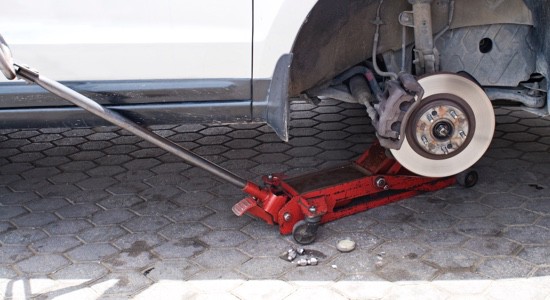
Brake fluid can leak from various parts of your brake system. Being aware of which parts are susceptible to leaks can help you be on the lookout for problems.
Brake lines run from your vehicle’s master cylinder, located on the driver side firewall in the engine compartment along the underside of your vehicle, to components along the way and inside each wheel. They are designed to withstand everyday attack from weather and road conditions. Over time, however, they are subject to rusting and pitting. They should be inspected for damage and fluid leaks during regular maintenance.
While other components are at less risk from debris, vibration and conditions, hazards can loosen fittings and affect the composition of cylinders, links, the reservoir and switches. Hyperextended pistons due to worn brake pads, shoes, rotors and drums can also cause damage that lead to fluid leaks.
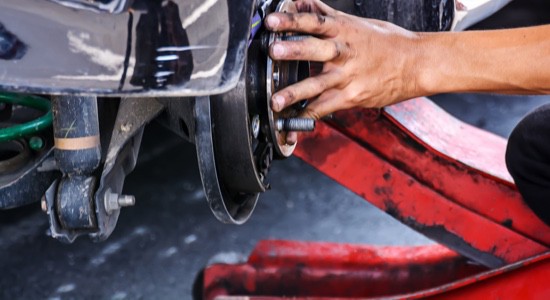
If you suspect you have a brake fluid leak or see any other fluid leaking from your vehicle, have your car inspected immediately by your mechanic. Don’t put your safety and the safety of your passengers at risk by driving with a compromised brake system.
Learn more about quality brake hardware, find your car part, or find a local car repair shop today.
The content contained in this article is for entertainment and informational purposes only and should not be used in lieu of seeking professional advice from a certified technician or mechanic. We encourage you to consult with a certified technician or mechanic if you have specific questions or concerns relating to any of the topics covered herein. Under no circumstances will we be liable for any loss or damage caused by your reliance on any content.